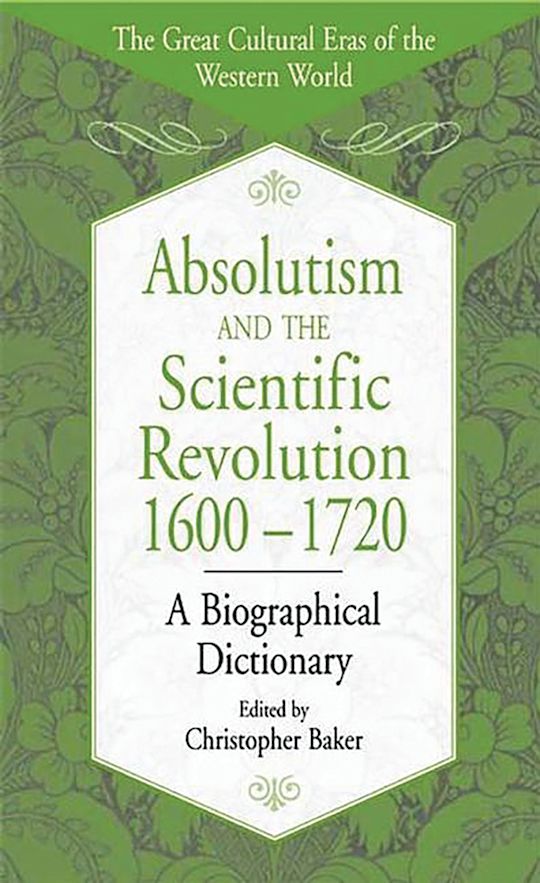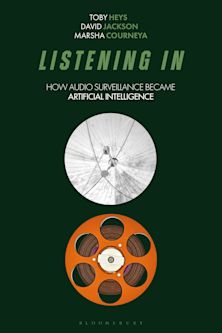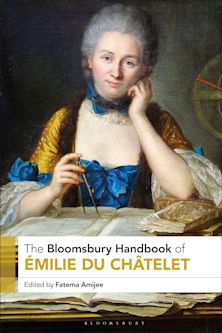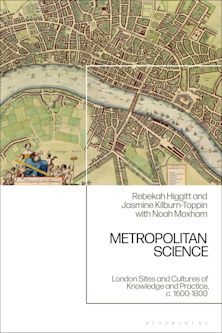- Home
- ACADEMIC
- History
- History of Science, Technology and Medicine
- Absolutism and the Scientific Revolution, 1600-1720
Absolutism and the Scientific Revolution, 1600-1720
A Biographical Dictionary
Absolutism and the Scientific Revolution, 1600-1720
A Biographical Dictionary
You must sign in to add this item to your wishlist. Please sign in or create an account
Description
This book—the sixth volume in The Great Cultural Eras of the Western World series—provides information on more than 400 individuals who created and played a role in the era's intellectual and cultural activity. The book's focus is on cultural figures—those whose inventions and discoveries contributed to the scientific revolution, those whose line of reasoning contributed to secularism, groundbreaking artists like Rembrandt, lesser known painters, and contributors to art and music.
As the momentum of the Renaissance peaked in 1600, the Western World was poised to move from the Early Modern to the Modern Era. The Thirty Years War ended in 1648 and religion was no longer a cause for military conflict. Europe grew more secularized. Organized scientific research led to groundbreaking discoveries, such as the earth's magnetic field, Kepler's first two laws of motion, and the slide rule. In the arts, Baroque painting, music, and literature evolved. A new Europe was emerging. This book is a useful basic reference for students and laymen, with entries specifically designed for ready reference.
Table of Contents
Chronology
Absolutism and the Scientific Revolution, 1600-1720
Appendix A: Entries Arranged by Subject
Appendix B: Entries Arranged by Country
Bibliography
Index
Product details
| Published | 30 Sep 2002 |
|---|---|
| Format | Ebook (PDF) |
| Edition | 1st |
| Extent | 488 |
| ISBN | 9780313013607 |
| Imprint | Greenwood |
| Series | The Great Cultural Eras of the Western World |
| Publisher | Bloomsbury Publishing |
About the contributors

ONLINE RESOURCES
Bloomsbury Collections
This book is available on Bloomsbury Collections where your library has access.





























